Are You Looking For A Solution To Your Fungal Toenails In Benfleet Essex ?
Conveniently located in Benfleet Essex
297 High Road Benfleet Essex SS7 5HA
Free Parking Available
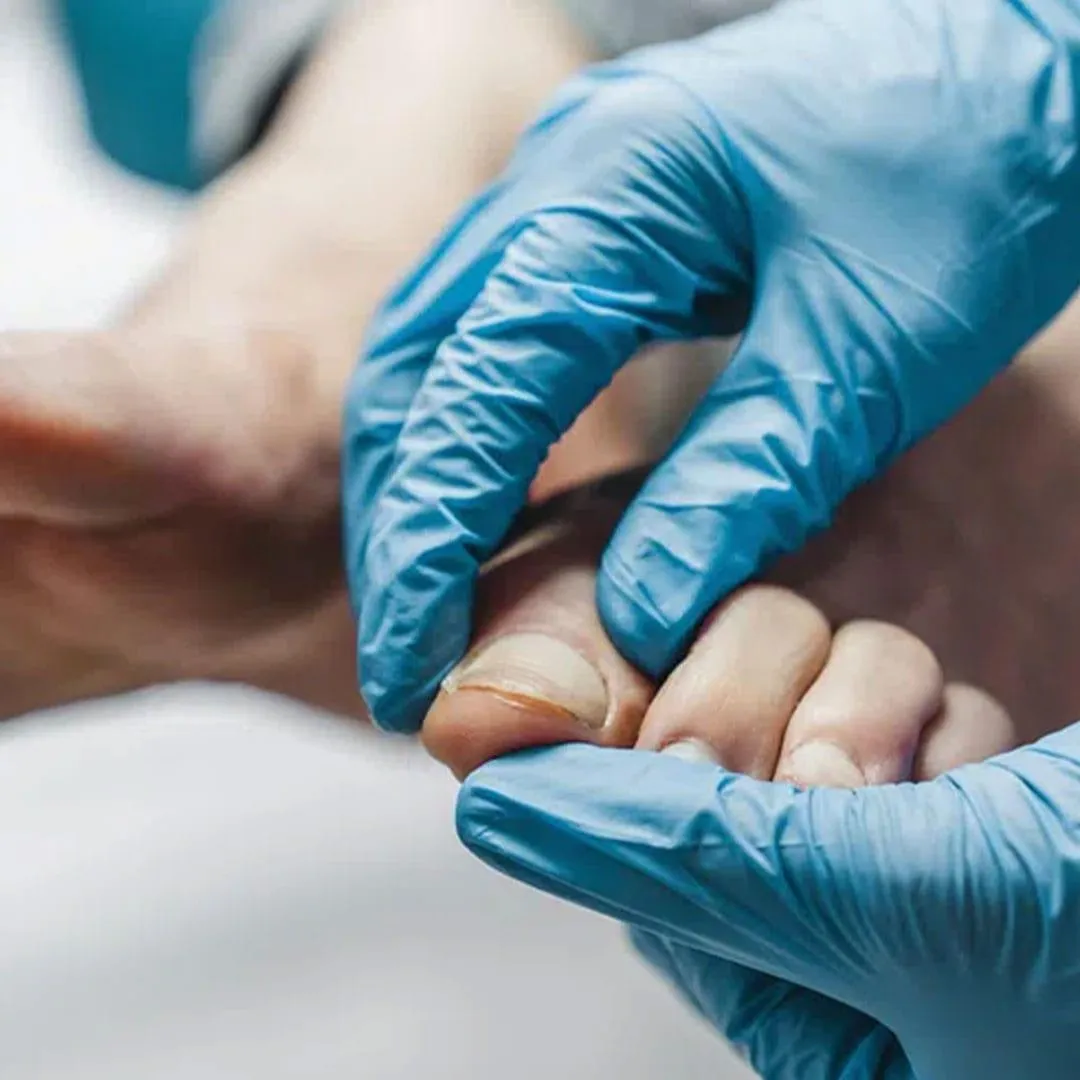
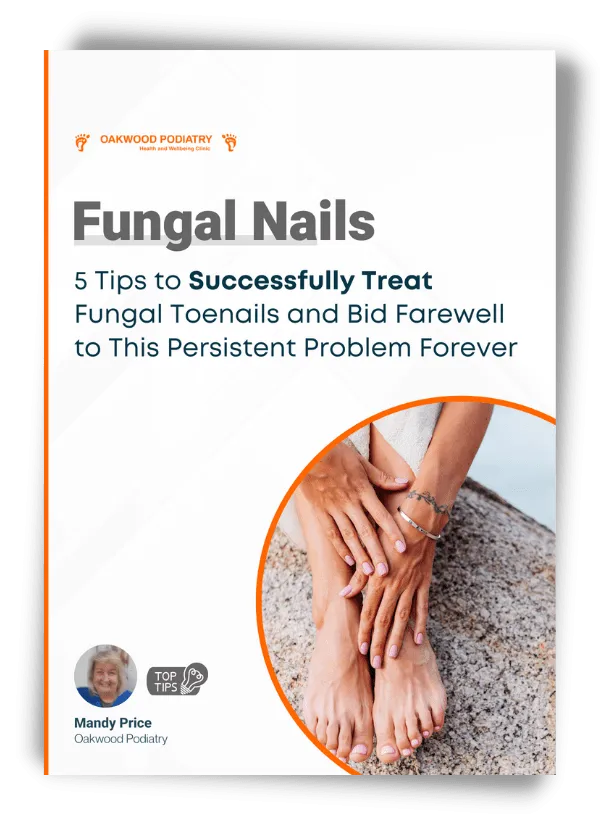
Download Your FREE Fungal Toenail Information Pack:
"Discover The Best Ways To Get Rid Of Your Fungal Toenails Forever"
Click the button below to get your FREE Report
Does Any of This Sound Familiar?
Do you find yourself being self-conscious, particularly in social situations where people may notice the affected nails?
Do you find it difficult to trim or maintain your nails properly, which results in discomfort?
Do you have brittle nails that are prone to breaking, which can be painful and interfere with your daily activities?
Do you have a foul smell from your affected nails that is starting to affect your confidence and social interactions?
Do you find yourself itching, scratching, or picking at the affected area?
Have you started to worry that you will never get rid of your fungal toenail and may never be able to resume the activities you love?
If you answered YES to any of the above, you're not alone. At Oakwood Podiatry we hear stories like this every single day and we know EXACTLY how to help fix your fungal nail pain.

Experts In Podiatry
Benfleet Essex
Still Feeling A Little Confused About Your Fungal Nail Condition And Don't Know What To Do?
#1 Option (👍 most popular)

#2 Option - Send Us a Message

#3 Option - Book Appointment

Signs and Symptoms That May Suggest You Have a Fungal Nail Problem
If you’ve got fungal nail problem – it’s very tempting to think that it’s nothing, that it will go away on its own. Or, you might pass it off as something “everyone” your age suffers from…
There’s no obvious reason why it happened – but it doesn’t seem to be shifting and its been there a good while now.
If that’s happening to you, you’re not alone – and we hear this type of thing all the time. In fact, it's one of THE most common nail problems that we see in Oakwood Podiatry.
Common symptoms include:
Discoloured nails
Thickened nails
Brittle or crumbly nails
Buildup of debris under the nail
Foul odour
Difficulty in applying nail polish
Pain or discomfort

Frustrated With Your Fungal Nail?

Not sure who to ask?
Not sure what to do next?
Not sure who can help?
Please fill out the form below and chat with one of our team members about your right next step
Treatment Options for Fungal Toenails With The Lacuna Method® Treatment
Step 1 - Comprehensive Toenail Examination
Our experienced and knowledgeable therapists will examine :
Your toenail range of movement
Your foot hygiene and footwear
The biomechanics of the way you walk
Any existing trauma or injury to the toenail
This process will help identify exactly what is causing your fungal toenails.
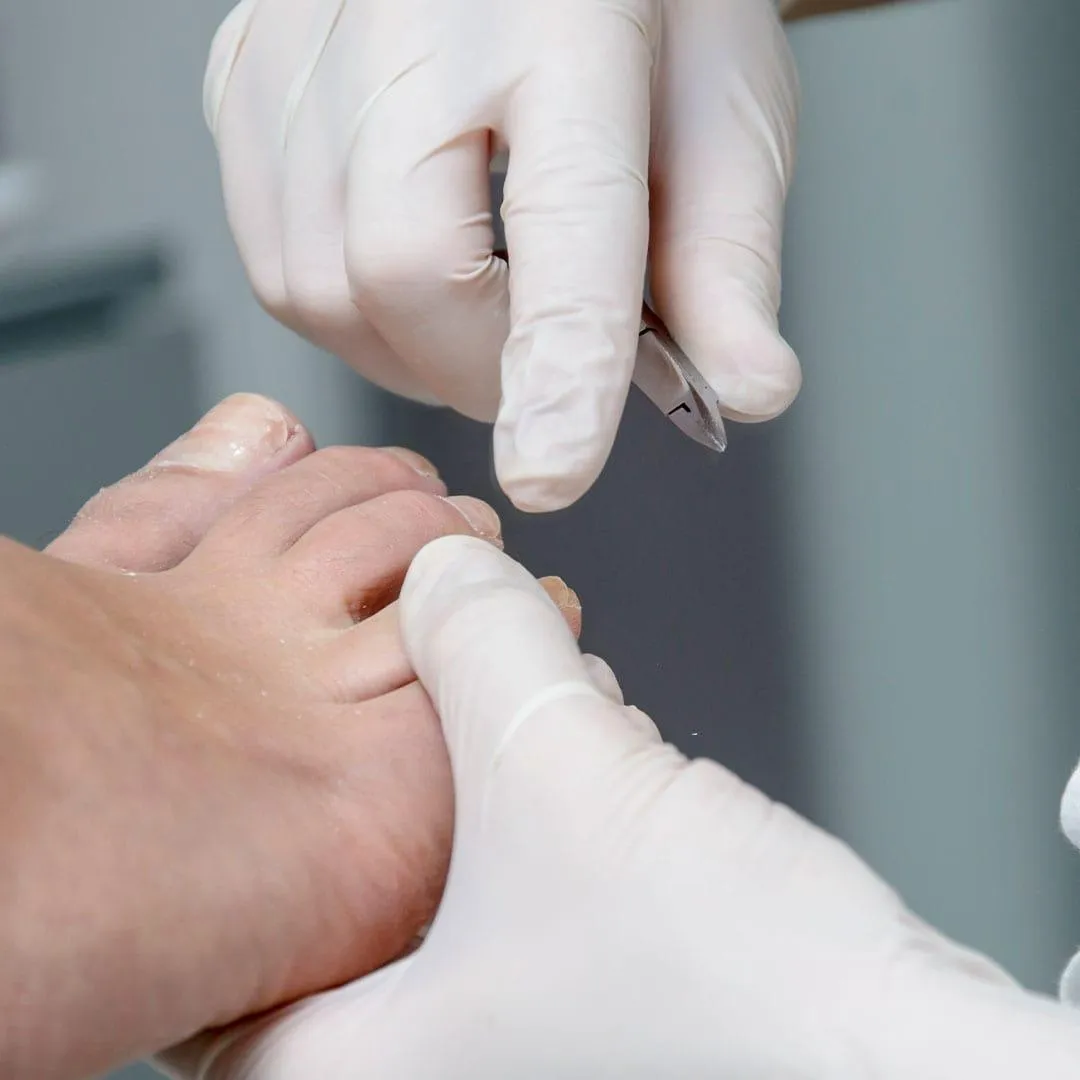
Step 2 - Customised Treatment Plan
The team at Oakwood Podiatry are experts in fungal nail treatment.
We use the latest medical research and technology to produce a bespoke treatment plan to get you back fit and active doing all the things that your fungal nail is stopping you doing.

Step 3 - Recovery
Each treatment aims to gently and progressively get your moving again without pain, as quickly as possible, to allow you to get back to normal and start doing the things you love.
We will give you a structured rehabilitation programme, to help break the cycle and prevent the problem from returning.

Treatment Options for Fungal Toenails With The Lacuna Method® Treatment
The Lacuna Method in podiatry is a technique used to treat fungal nail infections by creating small holes or channels in the infected nail to facilitate the application of antifungal medications. While specific steps may vary based on the podiatrist's approach and the patient's condition.
Here's a general outline of the treatment process using the Lacuna Method:
Consultation and Assessment:
The process begins with a consultation with a podiatrist. They will examine the affected nail(s) and assess the severity of the fungal infection. The podiatrist will also take into consideration your medical history and any previous treatments you've undergone.
Treatment Planning:
Based on the assessment, the podiatrist will develop a personalised treatment plan. They will determine whether the Lacuna Method is suitable for your condition and discuss the procedure, its benefits, potential risks, and expected outcomes.
Preparation:
Before performing the Lacuna Method, the podiatrist will clean and sterilise the treatment area to reduce the risk of infection. They may also trim the affected nail(s) to make the procedure more effective.
Creating Lacunae:
Using specialised equipment such as a microdrill or a burr, the podiatrist will carefully create small holes or channels in the infected nail plate. These holes allow antifungal medications to penetrate the nail and reach the underlying fungal infection.
Application of Anti-fungal Medication:
Once the lacunae are created, the podiatrist will apply topical antifungal medications directly to the affected area. These medications are more effectively absorbed through the holes, targeting the infection.
Post-Procedure Care:
After the procedure, the podiatrist may provide instructions for post-treatment care. This could include recommendations for keeping the treated area clean, applying any prescribed medications, and avoiding activities that might damage the treated nail.
Follow-Up Visits:
In many cases, the Lacuna Method is not a one-time treatment. Follow-up appointments may be scheduled to monitor the progress of the infection and make adjustments to the treatment plan if necessary. Additional lacunae may be created in subsequent sessions.
Combined Treatment Approaches:
The Lacuna Method can be used in combination with other treatments, such as oral antifungal medications or laser therapy, to enhance the overall effectiveness of the treatment.
It's important to note that the steps and specifics of the Lacuna Method may vary based on the podiatrist's experience, the patient's individual needs, and the severity of the fungal infection. Always consult with a qualified podiatrist or healthcare professional for accurate information and personalised treatment recommendations.
Is The Fungal Nail Programme Right For You?
Our team of podiatrists at Oakwood Podiatry are experts in treating fungal nail conditions, helping 1000's of patients get back to walking and running with relief from fungal nails.
Here’s just a few of the things our podiatry team can do for you:
We can help quickly relieve your fungal nail symptoms, often within just a couple of sessions.
On day one, we can inform you of what you have, why you have it, and how to get rid of it, so you can feel confident and informed about your treatment.
We can help you discover what's truly causing your fungal nail infection and address the root issue in as little as 20 minutes.
Our treatments can help give you more energy to enjoy each day to the fullest.
We can help you say goodbye to taking harmful painkillers long-term and find a more effective solution.
We can help you avoid surgery – and painful injections
We can help you keep out of the doctor’s waiting room or from making repeat visits only to be given more pills!
We can help you get back to enjoying quality time with family and friends that your fungal nail has stolen from you
We can help you keep active and live a full life free from the curse of fungal nail pain.
What's next? You've got a decision to make - another month gone by without solving your fungal nail problem, or are you ready to get back to doing the things you love?
Is Your Fungal Nail Ruining Your Confidence? Take Us Up on One of Our Free Options
Option #1 (👍 most popular)

Option #2


From Consultation to Treatment
What to Expect at Your First Podiatry Visit
We're excited to see you at your appointment! We want to make sure you feel comfortable and well-informed, so don't hesitate to ask us any questions about our treatments and our clinic. Our goal is to help you get back to living your life free of pain, so let's work together to make that happen!
Discuss your foot health goals
Complete foot examination
Discover your options
Start a custom treatment plan


4 Reasons To Choose Oakwood Podiatry

Specialised Expertise: Our clinic offers specialised care from highly-trained podiatrist in various fields like sports rehab and chronic pain management.
Comprehensive Approach: We provide holistic treatment plans combining manual therapy, exercises, and cutting-edge technology for a well-rounded approach.
Cutting-Edge Facilities: Equipped with state-of-the-art facilities and advanced equipment to support patients' recovery.
Proven Track Record: Our clinic's reputation is built on successful patient outcomes and positive feedback, fostering a supportive environment for rehabilitation.
Frequently Asked Questions About Fungal Nails
What causes fungal toenails?
Fungal toenails, also known as onychomycosis, are primarily caused by various types of fungi, such as dermatophytes, yeasts, and molds. These organisms thrive in warm and moist environments, making toenails susceptible to infection, especially in conditions like sweaty shoes or damp communal areas.
How can I prevent fungal toenail infections?
To prevent fungal toenail infections, practice good foot hygiene. Keep your feet clean and dry, trim your toenails regularly, wear breathable shoes, and change socks frequently. Avoid walking barefoot in public places like locker rooms and pool areas, and be cautious when getting pedicures to ensure that tools are properly sanitised.
What are the symptoms of fungal toenails?
Common symptoms of fungal toenails include discoloration (yellowing or darkening of the nail), thickening, brittleness, distorted shape, and a foul odor. In some cases, the infected nail may separate from the nail bed, leading to pain or discomfort.
How is a fungal toenail infection diagnosed?
Diagnosis often involves a visual examination by a healthcare professional. Additionally, they may take a nail clipping or sample to perform laboratory tests like a fungal culture or microscopy to identify the specific fungus causing the infection.
What are the treatment options for fungal toenails?
Treatment options vary, and they may include antifungal medications (oral or topical), medicated nail polish, or in severe cases, surgical removal of the nail. It's important to consult with a healthcare professional to determine the most appropriate treatment based on the severity of the infection.
How long does it take to cure a fungal toenail infection?
The duration of treatment varies depending on the severity of the infection and the chosen treatment method. It may take several weeks to several months for the new, healthy nail to replace the infected portion. Consistent and diligent adherence to the prescribed treatment is crucial for successful resolution.
Can over-the-counter antifungal products treat fungal toenails effectively?
While some over-the-counter antifungal products may provide relief for mild cases, consulting a healthcare professional for proper diagnosis and prescription-strength medications is advisable for more severe infections. Over-the-counter options may not be potent enough for effective treatment in some cases.
Are fungal toenail infections contagious?
Yes, fungal toenail infections can be contagious. Avoid sharing personal items such as nail clippers and socks, and practice good hygiene to reduce the risk of spreading the infection to others or other areas of your own body.
Can I wear nail polish if I have a fungal toenail infection?
It's generally recommended to avoid nail polish during the treatment of a fungal toenail infection, as it may trap moisture and exacerbate the condition. Keeping the nails clean and allowing them to breathe is crucial for effective treatment.
What should I do if home remedies don't improve my fungal toenails?
If home remedies prove ineffective, or if the infection worsens, consult a healthcare professional. They can provide a proper diagnosis and recommend appropriate prescription medications or other advanced treatment options. Early intervention increases the likelihood of successful treatment.
Please note that these FAQs provide general information and should not replace personalised advice from a qualified healthcare professional. It is important to consult with a trusted podiatrist to assess your individual case and determine the most suitable treatment plan for your fungal nail.
Frustrated With Your Fungal Nail?

Not sure who to ask?
Not sure what to do next?
Not sure who can help?
Please fill out the form below and chat with one of our team members about your right next step
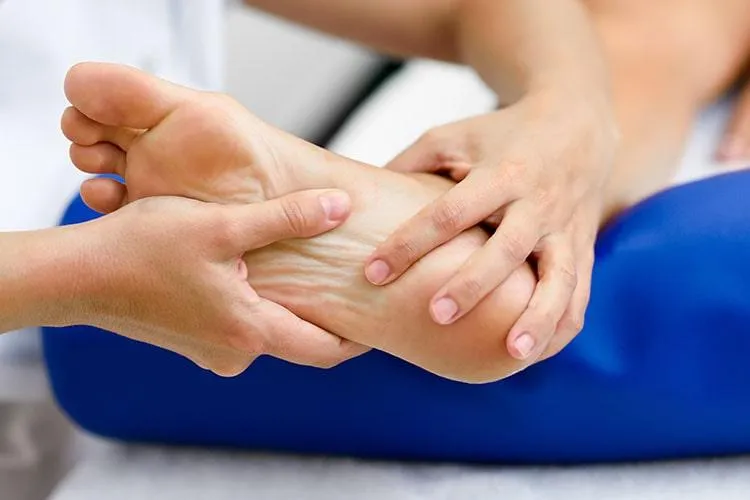
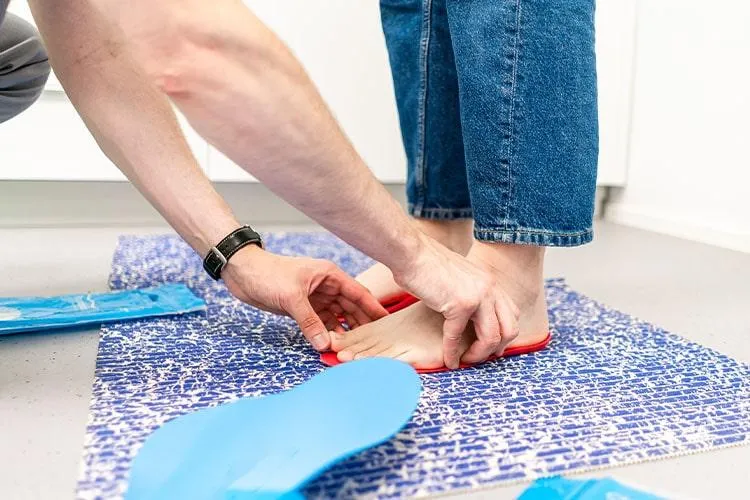
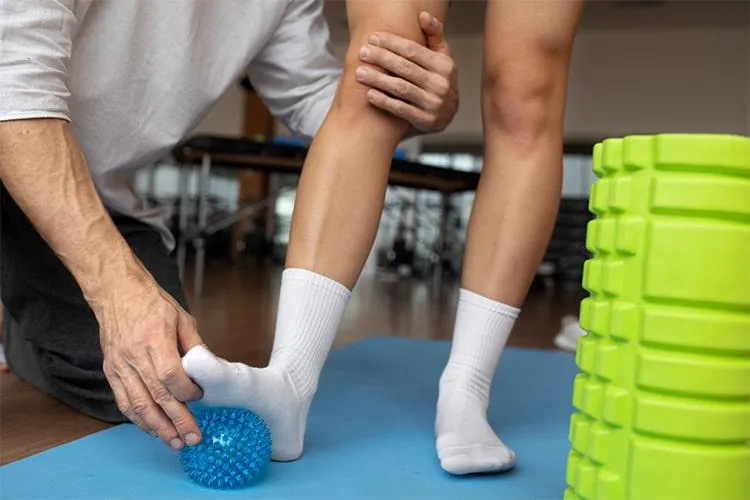
Where To Find Oakwood Podiatry

If you have any questions before scheduling an appointment or for general inquiries, please use the contact us button below. Our team will promptly reach out to assist you.
Opening Hours
Monday: 9am - 5pm
Tuesday: 9am - 5pm
Wednesday: 9am - 5pm
Thursday: 9am - 5pm
Friday: 9am - 5pm
Saturday: Closed
Sunday: Closed

